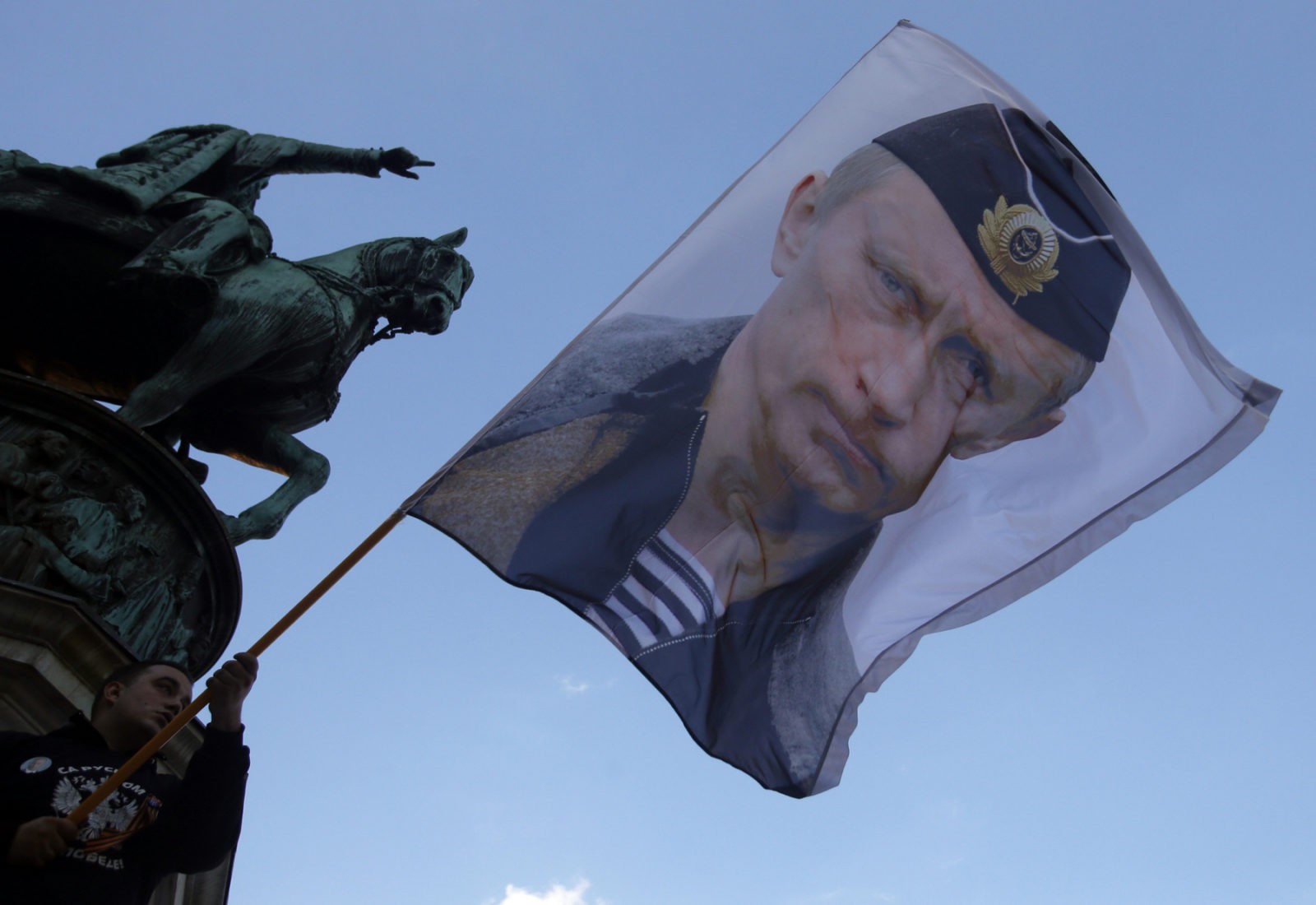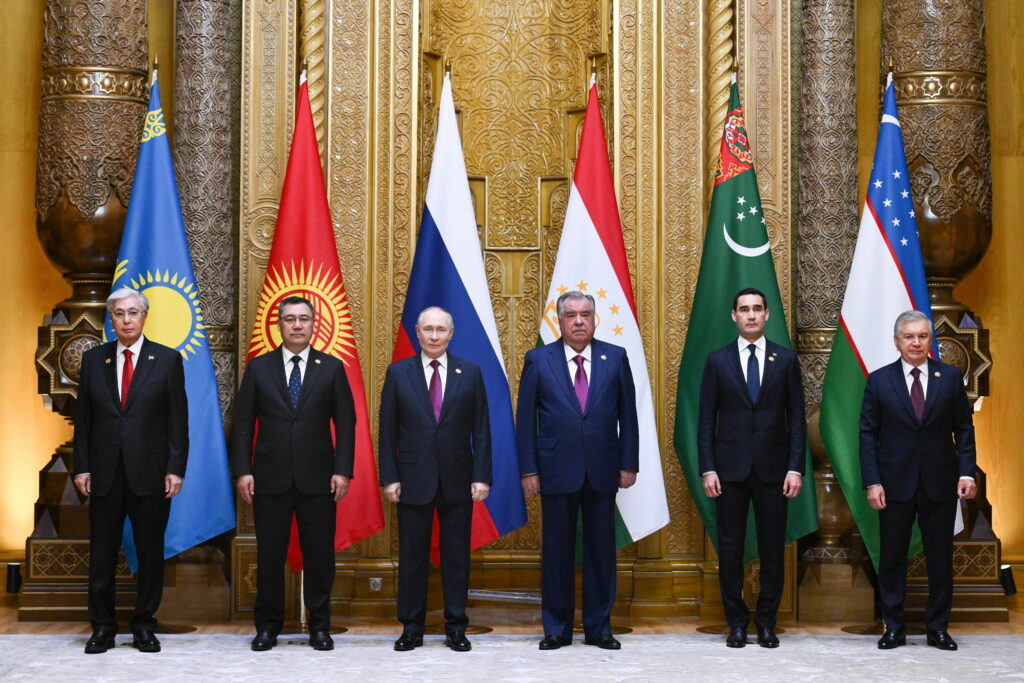«External players should not create confrontational situations in the Balkans, and no external player should profess to control the Balkans. For everybody else, it’s off limits.» With these words, Russian Foreign Minister Sergey Lavrov confirmed Russia’s desire to develop its presence in the Balkans. His words reflect a view of the Balkans in which the region features as a site of competition with the United States and its partners, who call for its accelerated Euro-Atlantic integration.
In recent years, we have seen attempts by Russia and western states to weaken each other’s influence in the Balkans. Although this rivalry has not affected the security situation in the post-conflict region, political and inter-ethnic tensions still persist. And as Russia’s relations with the United States and EU continue to worsen, those tensions could even increase.
Weakened by the economic crisis and international sanctions, it would seem at first that Russia was in no place to significantly alter the post-war settlement process nor the pace of integration in a distant region (particularly as the Balkan elites, whatever their desires for cooperation with Moscow, see their priority as gaining EU and NATO membership.) On the other hand, the Russian authorities have a large range of tools at their disposal with which they try to adjust public opinion and the balance of power on the political scenes of various Balkan states. These efforts can hardly be called «ineffective.»
Due to its support of conservative forces and opaque methods of operation, disputes have arisen as to just how far the Kremlin is willing to go in the Balkans. On at least two occasions in recent years — in Montenegro and Macedonia — we have witnessed an increase in political tensions and the politicisation of inter-ethnic relations, both with active Russian participation. And while Russia does not have military levers of influence in the Balkans, it is capable of devising scenarios to destabilise the region with the participation of local elites, military and intelligence officials, and radical groups.
For example, against the background of its campaign to support the Montenegrin opposition in 2016, Moscow faced accusations of preparing a «bloody scenario» in order to disrupt Montenegro’s accession to NATO. The country’s authorities announced that they prevented the seizure of state institutions and the murder of president Milo Djukanović, moves which were planned on election day in October 2016 with the assistance of Russian citizens.
Russia deployed all the public information and diplomatic resources it could muster to discredit these assessments of its role in the Balkan state, but it proved impossible to fully conceal the existence of a «Russian trail» in the events. The press was able to produce not only photographs confirming the plotters’ contact with Russian citizens, but also the biographies of the latter, which demonstrated evidence of links to other destabilisation operations.
By supporting the Democratic Front party through diplomatic means, local politicians, and contacts in the media (among other methods), the Russian authorities promoted the emergence of a political party which openly denies Montenegrin statehood, takes clearly anti-western positions, and refuses to rule out armed struggle. While the alleged attempted coup d’état failed to block Montenegro’s NATO membership, it succeeded in aggravating political controversies and intensified such divisions within Montenegrin society.
As concerns Macedonia, here too the Kremlin’s attempts to influence the country’s political trajectory were at times too direct. They have been particularly noticeable in recent months, when Skopje and Athens set out to resolve a long-standing dispute over the name of the former Yugoslav Republic, the resolution of which opened the way for Macedonia’s Euro-Atlantic integration. In this case, Moscow used various methods, from spreading disinformation to direct political pressure and the funding of protests.
Propaganda from Russia painted a very specific image of Macedonia, which was portrayed as a «pseudo-state» which the west is attempting to turn into a protectorate by modifying its «national identity» and leaving it at the mercy of «Greater Albania.» Meanwhile, the earnest pleas of Russian diplomacy to the «Macedonian land so close to the Russian heart» are easily followed up by actual threats.
During preparations for the recent referendum, observers noted a surge in hacker attacks in the region and negative campaigning on social networks; they linked both these developments to none other than Russia. Prior to this, information appeared concerning Moscow’s possible involvement in organising mass protests in Macedonia and Greece. It is suspected that the Russian diplomats exiled from Athens and the billionaire Ivan Savvidi, who lives in Greece but spent most of his life in Russia, may have played a role.
Furthermore, media obtained «classified data» from the Macedonian intelligence services which indicated that Macedonian society has over the last decade faced «provocative propaganda and intelligence activities.» Several publications suggested that Moscow’s policy of distancing Macedonia from the west contributed to the growth of a long-simmering ethno-political crisis in the country.
In recent years, Russia has featured prominently in political debates in the Balkans. People argue at length about the extent of Russian influence, whether the Kremlin really harbours «imperial ambitions,» or whether Moscow, having quarrelled with the west, is on the back foot, and is merely trying to prevent the latter from realising its plans for the region. The debate gets a great deal more controversial when local political leaders weigh in, whether president of Montenegro Milo Djukanović or President of Croatia Kolinda Grabar-Kitarović, who spoke recently about the «threat» from Russia and the dangers of «hybrid war,» disinformation, arms supplies, and the activities of intelligence agencies.
While Russian officials and experts frequently say that the Balkans have a great historical and geographical significance for Moscow, official documents don’t spare much thought for this «soft underbelly of Europe.» The Russian state’s latest foreign policy concept, drafted in 2016, mentions the Balkans in passages elaborating on Russia’s desire to strengthen ties with other Slavic countries and nations which are not members of military alliances. This refers primarily to Serbia, which designates itself a neutral country and has not announced any plans to join NATO (although it is developing close cooperation with the western military alliance.)
Yet Moscow and Belgrade have differing perceptions of what «Serbian neutrality» means in the context of modern international relations. While Russia reacts harshly to Serbia’s rapprochement with the NATO «aggressor,» which began in 2000s, the Serbian authorities point out that «neutrality is not an obstacle to deepening cooperation with NATO, and [neutrality] does not mean self-isolation.» Meanwhile, western partners perceive this status (a status not defined in any law) as a transitional stage in Serbia’s defence and security policy.
In coming years, security issues will remain a pressing issue among Balkan players, and the subject of several disputes. Alongside Serbia, Bosnia and Herzegovina will be in the spotlight. Due to the split in Bosnia’s political elite which has persisted since the end of the war in the 1990s, Bosnia has no common foreign policy to this day. As such, the country is the most dangerous area for a possible confrontation; the Bosnian state authorities are very weak, while local leaders harbour very different views for the country’s future, from its structure to the trajectory of reforms and integration processes. Bosnia’s legal framework includes mechanisms which protect the interests of the country’s three main ethnic groups (Bosnian Muslims or Bosniaks, Bosnian Croats, and Bosnian Serbs.) These mechanisms block the authorities from taking a number of serious decisions, including in foreign policy. The incessant political tensions and internal crises which result play easily into Moscow’s hands: such conditions make it far easier to resist Euro-Atlantic influence.
The most convenient anti-western «lever» in Bosnia is Milorad Dodik, leader of the Bosnian Serbs. Dodik, who in recent years has been under US sanctions, aims at nothing less than the disintegration of the Bosnian state (which comprises two parts: the Federation of Bosnia and Herzegovina, and Republika Srpska), as well as the obstruction of the Euro-Atlantic agenda. Dodik’s demands to hold a referendum in Republika Srpska on NATO membership — a referendum whose results are known in advance — effectively blocks any progress on the question.
Another point of tension in Russia’s relations with the United States and the EU in years to come will be Kosovo. The Kremlin actively uses the Kosovo dispute as a precedent to justify the annexation of Crimea and wider tendency to undermine the sovereignty of its neighbours. At the same time, Kosovo’s as yet unresolved post-war settlement in Kosovo is useful fodder to criticise the territory’s «western protectors.»
After 2008, when the Kosovar Albanians declared independence from Serbia, Russia was essentially excluded from the peace process. However, Moscow continues to influence the situation by disseminating anti-Albanian propaganda, discrediting the Kosovar Albanian political elite, blocking the territory’s attempts to join international organisations, and encouraging Serb separatism in northern Kosovo.
Last year we witnessed rising tensions between Belgrade and Priština as attempts dragged on to complete normalisation negotiations, mediated by the EU. Doing so requires signing a legally binding agreement, and achieving it is a priority for both Serbia itself, which has been negotiating EU accession since 2014, and Kosovo, which is still a potential EU candidate. Kosovo has other motivations to conclude the treaty: a settlement with Belgrade is needed for its planned integration into NATO.
Although the framework of the future agreement has not yet been fully established, the settlement process itself presupposes that Belgrade renounce its policy of blocking Kosovo’s statehood. All told, achieving this final settlement will not be easy, and not only because of disputes between Belgrade and Priština. The fate of those agreements already reached is not inspiring; they have yet to be fully implemented. An additional factor is the opaqueness of Moscow’s approach; Russia has proven able to muster its influence both in the international arena and even in Kosovo itself.
There are no significant Russian investments in Kosovo, and Moscow has few direct means of influence worth discussing. However, it does have the opportunity to influence the local Serb community through ties between the Orthodox churches and political parties. This could result in the growth of nationalism and separates in northern Kosovo, a region essentially outside the control of the authorities in Priština. Some experts point out that while Russia poses a serious problem to Kosovo’s statehood, the Kosovar authorities do not have the means to prevent Moscow’s influence from spreading.
Consequently the Balkans, where integration process have slowed down significantly in recent years, will remain a site of political confrontation for the foreseeable future. Moscow will continue to challenge the legitimacy of Euro-Atlantic integration and focus on weak points in western policy through its network of pro-Russian political organisations, conservative church circles, and propaganda resources which work to dial up fear, inter-ethnic intolerance, and distrust towards the region’s main donors and foreign partners: the EU and United States.
In this light, countries which have experienced inter-ethnic conflict in the recent past and are at the beginning stages of the integration process (namely Bosnia and Herzegovina, Kosovo, Macedonia, and Serbia) appear more vulnerable.
And while some experts to this day regard the situation in the region as fragile, believing that any serious incident could provoke a chain reaction, the Balkans are not threatened by large scale destabilisation. The attitude of local elites towards integration into the western community and the settlement of disputes and contradictions left lingering from the conflicts in the 1990s is quite obvious.
Despite Moscow’s serious differences with its western partners and demonstrable resolve to strengthen its position on the Balkans by a variety of means, it would be an exaggeration to accuse Russia of provoking new crises in the region. Other experts believe that Moscow’s role is mostly to play to on long standing disputes and widespread anti-western sentiments to project the image of a powerful Russia. Yet a powerful Russia without a coherent strategy nor sufficient opportunities to undermine the spread of western influence.
The Kremlin takes variable and shifting approach to the Balkans and seems to lack a positive, alternative, universal programme to offer the region (instead attempting to implant an «Orthodox-Eurasianist» agenda into a multi-ethnic and multi-confessional environment.) Neither will allow Russia to significantly increase its influence in the region. Schemes such as the Eurasian integration of Balkan countries or safeguarding their military neutrality will not gain widespread traction. Such proposals are unrealistic not only due to the weakness of the economies of Balkan countries and local elites’ lack of interest in them, but due to the fact that Russia itself lacks the means to promote them.
Ties with Russia offer some countries in the region (particularly Serbia) the ability to maintain a balanced foreign policy, and to reap the economic and political benefits of doing so. Yet their long term development depends, among other things, on a resolution to the crisis in relations between the Kremlin, EU, and United States. When local leaders speak of historical ties with Russia or with the Orthodox world, they do so primarily to promote their own causes and mobilise their local supporters.
In that sense, there is no desire in the region to establish closer ties with Russia at the expense of current integration projects with the west — integration projects on which the countries of the Balkans pin their hopes for security and future economic growth.
What does the future hold for relations among Russia, Europe and the United States? This article is part of a series on future scenarios, sponsored by Riddle in cooperation with Johns Hopkins University SAIS and DGAP, supported by the Robert Bosch Stiftung.











